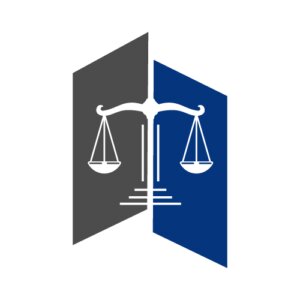Best E-commerce & Internet Law Lawyers in Turkey
Share your needs with us, get contacted by law firms.
Free. Takes 2 min.
Or refine your search by selecting a city:
List of the best lawyers in Turkey
About E-commerce & Internet Law in Turkey
E-commerce and Internet Law in Turkey govern the legal affairs of online business activities, digital content, and the operation of digital platforms. This area of law encompasses regulations on consumer protection, digital contracts, privacy and data protection, intellectual property, electronic transactions, and dispute resolution among others. Turkey, being a bridge between Europe and Asia, has been evolving rapidly in its digital infrastructure and regulatory framework to support the growing e-commerce market. The primary legislation for e-commerce is the Electronic Commerce Law No. 6563, supported by various regulations like the Law on the Regulation of Electronic Commerce, the Law on Consumer Protection, and the Personal Data Protection Law.
Why You May Need a Lawyer
Engaging a lawyer who specializes in E-commerce & Internet Law may be necessary for a variety of reasons, including:
- Understanding and ensuring compliance with Turkey's e-commerce regulations, including consumer protection and advertising standards.
- Drafting and reviewing terms and conditions, privacy policies, and digital contracts.
- Handling intellectual property rights and addressing infringement issues related to digital content.
- Navigating data protection requirements and avoiding penalties under the Personal Data Protection Law.
- Resolving disputes that arise between online platforms, businesses, and consumers.
- Facilitating business transactions, mergers, or acquisitions involving e-commerce businesses.
Local Laws Overview
Key aspects of local laws in Turkey relevant to E-commerce & Internet Law include:
- Electronic Commerce Law No. 6563: Governs the duties of service providers and intermediaries in electronic commerce and aims to enhance consumer trust in online transactions.
- Consumer Protection Law: Provides safeguards for consumers in the online retail environment, ensuring transparency and fair trading practices.
- Personal Data Protection Law (KVKK): Regulates the processing of personal data, reinforcing privacy rights similar to the EU's GDPR.
- Regulation on Commercial Communication and Commercial Electronic Messages: Controls advertising and commercial communications in electronic commerce.
- Law on Intellectual and Artistic Works: Protects digital content created in the online space and addresses copyright issues.
Frequently Asked Questions
1. What is considered as E-commerce under Turkish law?
Under Turkish law, e-commerce refers to economic and commercial transactions conducted over the electronic medium, including selling goods and services, and engaging in business activities via the internet.
2. Are there specific requirements for e-commerce websites in Turkey?
Yes, e-commerce websites are required to provide clear information about the business, security details for transactions, seller identity, and must comply with consumer protection laws.
3. How does Turkey address online fraud?
Turkey combats online fraud through stringent regulations under the Electronic Commerce Law and the broader Consumer Protection Law, bolstered by cybersecurity standards and penalties for offenders.
4. How are personal data privacy concerns handled in e-commerce?
The Personal Data Protection Law (KVKK) sets guidelines for collecting, storing, and processing personal data in e-commerce, ensuring user consent and rights to data protection.
5. What are the penalties for non-compliance with e-commerce laws in Turkey?
Penalties range from warnings and fines to suspension of business activities, depending on the severity of the breach and applicable regulatory standards.
6. Are electronic contracts legally binding?
Yes, electronic contracts are legally binding provided they meet the criteria of offer, acceptance, and intention to create legal relations, consistent with the principles in traditional contracts.
7. Is there a regulatory body overseeing e-commerce in Turkey?
The Ministry of Trade oversees e-commerce practices along with other bodies like the Personal Data Protection Authority (KVKK) which regulates data privacy.
8. How can I protect my intellectual property in e-commerce?
Ensure you register your intellectual property such as trademarks, patents, and copyrights, and use legal agreements to enforce your rights online.
9. What legal recourse do I have against false advertising online?
Victims of false advertising can file complaints with consumer arbitration boards or take legal proceedings under the Consumer Protection Law.
10. Can foreign businesses operate e-commerce websites in Turkey?
Yes, foreign businesses can operate in Turkey's e-commerce market but must comply with local laws and may require a local representative or branch.
Additional Resources
Here are some valuable resources and organizations relevant to E-commerce & Internet Law in Turkey:
- Ministry of Trade: Provides guidelines and oversight for e-commerce practices.
- Personal Data Protection Authority (KVKK): Offers resources and compliance guides on data protection laws.
- E-commerce Platforms Associations: Various associations that provide industry-specific insights and support for businesses.
- Chambers of Commerce: Local Chambers can provide legal assistance and business advice to e-commerce startups.
Next Steps
If you need legal assistance in the field of E-commerce & Internet Law in Turkey, consider the following steps:
- Identify your specific legal needs and potential issues in your e-commerce operations.
- Schedule a consultation with a lawyer specializing in E-commerce & Internet Law to discuss your situation.
- Ensure that the lawyer is familiar with the digital landscape and current regulations in Turkey.
- Prepare relevant documents and questions ahead of your consultation to make the most of your time.
- Consider ongoing legal support to keep up with regulatory changes and to manage any legal risks associated with your online business.
Lawzana helps you find the best lawyers and law firms in Turkey through a curated and pre-screened list of qualified legal professionals. Our platform offers rankings and detailed profiles of attorneys and law firms, allowing you to compare based on practice areas, including E-commerce & Internet Law, experience, and client feedback.
Each profile includes a description of the firm's areas of practice, client reviews, team members and partners, year of establishment, spoken languages, office locations, contact information, social media presence, and any published articles or resources. Most firms on our platform speak English and are experienced in both local and international legal matters.
Get a quote from top-rated law firms in Turkey — quickly, securely, and without unnecessary hassle.
Disclaimer:
The information provided on this page is for general informational purposes only and does not constitute legal advice. While we strive to ensure the accuracy and relevance of the content, legal information may change over time, and interpretations of the law can vary. You should always consult with a qualified legal professional for advice specific to your situation.
We disclaim all liability for actions taken or not taken based on the content of this page. If you believe any information is incorrect or outdated, please contact us, and we will review and update it where appropriate.
Browse e-commerce & internet law law firms by city in Turkey
Refine your search by selecting a city.
















